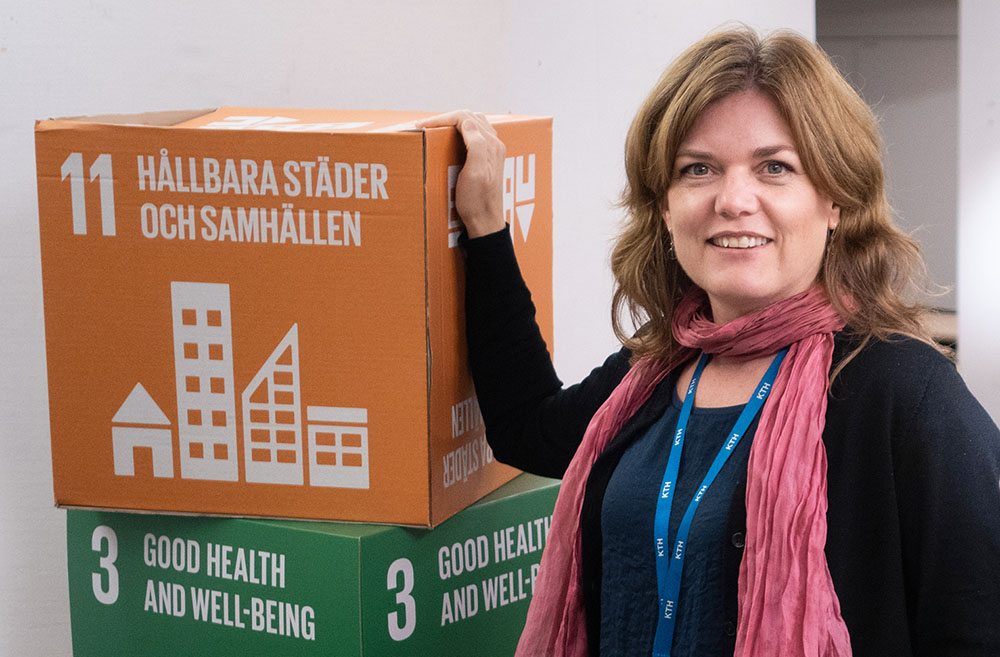KTH hosts hub during the UN climate conference

NEWS
Hello there, Karin Larsdotter, deputy director of KTH Climate Action Center; what is happening at KTH's COP27 hub?
"Quite a lot, among other things, we will show broadcasts from Sharm El Sheikh in Egypt, where the UN conference is. We will also discuss climate issues on-site with various participants from KTH and stream the seminars. There are also hubs in Nairobi and Washington DC, that broadcast seminars. This way, we will be able to connect different parts of the world, scientific fields, and discussions about how we can reverse the emission trends now."
Why a COP27 hub on campus?
"It’s an opportunity for our students and employees to participate in the activities at COP, but from home. We also hope that people and organizations outside KTH visit the hub in one way or another, and get in touch with us at KTH."
What difference does the hub make?
"People interested in COP can keep up to date and participate remotely. The fewer people who take the flight to Egypt, the better. But also: the more people that participate and have an impact, the better. I’m sure people who have not met before will connect and get new ideas about climate action. All efforts are needed right now, from industry changes to what you and I choose to do - and not do."
What are the biggest challenges that COP27 has?
"The overwhelming majority of countries worldwide have decided to try to limit temperature rise to 1.5 degrees. Currently, the countries' commitments are not enough to get there, and even if you have ambitious undertakings, you still won’t get there. There is a large gap between target and action. Another big challenge is that the countries that suffer the worst from climate change are the ones that have contributed the least to the problems, and vice versa. The poor countries want financial help with the disasters that are increasingly affecting them, and here the rich world is hesitant."
What are you hoping for as a result of the meeting in Egypt?
"It would be great to be positively surprised by for example, sharper commitments from various countries and plans for concrete measures. But I hope the conference leads to increased awareness among ordinary people and a greater willingness to contribute. Despite the vast majority disliking climate change, the necessary attitude and behavior change is missing - among states, organizations, and individuals."
You do research, among other things, on how to make society more resistant to the inevitable climate changes; what do you think is the most urgent to fix?
"The climate issue is relevant to all areas of technology, and all parts of society in all countries. But naturally, some sectors with large emissions that need global focus are energy, transport, the steel and concrete industry and agriculture. But even if the processes and technologies that generate the emissions are improved, we also need to moderate our requests. After all, it is the demands that create the emissions. At the same time, measures for climate adaptation are becoming increasingly urgent. What buildings are required in a changing climate? What are the requirements for the infrastructure? How are agriculture and food production affected, and how can we prevent communities from suffering food shortages? These issues will need even more input and action."
Interview: Anna Gullers
